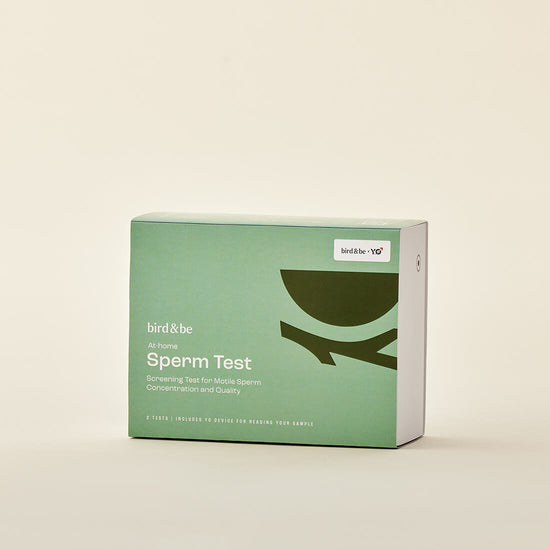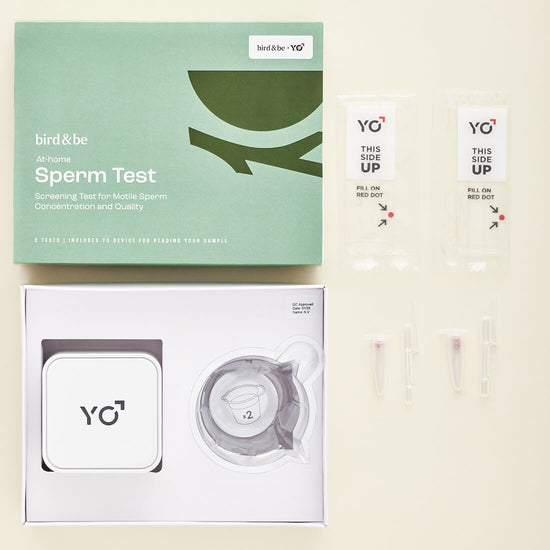If you’re having trouble conceiving, it can be disheartening to be told to lose weight before you can start fertility treatment. And it’s true that if you have a higher BMI or are considered obese, many doctors will ask you to lose a percentage of your body weight, or bring your BMI into a “normal” range and then come back. But why do doctors request this and is there good medical rationale for it? Here’s everything you need to know about how weight affects fertility.
What is BMI?
First, let’s brush up on BMI and the controversy of using it as a measurement of health. Body mass index (BMI) is a marker to determine whether someone is underweight, normal weight, overweight, or obese based on height and weight. The calculation is widely used to assess certain health risks, especially those related to metabolic disease and cardiovascular health. A BMI of 18.5 to 24.9 is considered healthy, and anything over 30 is considered obese.
BMI does have some limitations: it doesn’t take into account details about a person’s body composition, like the amount of adipose (fat) tissue in relation to lean tissues like muscle, or other things like bone, organs, and water. This means that two people with the same height and weight will have the same BMI, even if one person has a lot more muscle and a lot less adipose tissue than the other. It also leaves out other factors (like age, sex, and ethnicity) that can affect both height and weight.
Why do doctors use BMI?
Although some machines and tools can better assess body fat percentage specifically, they aren’t always readily available and they too can be flawed. Calculating BMI requires only a person’s height and weight to figure out, making it the easiest and most accessible method of screening.
How does weight and BMI affect fertility?
Despite its limitations, some studies have found links between BMI and fertility outcomes. Having a BMI below 20 (underweight) or above 24 (overweight or obese) has been associated with an increased risk of ovulatory infertility (when you can’t conceive because of issues with ovulation). Similarly, obesity is linked with a longer time to conception, reduced pregnancy rates, and increased miscarriage rates. There are added risks during pregnancy, too, including pre-eclampsia, gestational diabetes, and birth defects. Although not a perfect tool, establishing BMI has been effective at assessing risk.
Why does weight affect fertility?
-
Hormonal Imbalance: Adipose tissue (fat) is a hormonally active organ that influences energy production. Our reproductive system relies on having just enough adipose tissue to carry out key hormonal signals and functions, like turning testosterone into estrogen and regulating leptin, a hormone that affects the release of LH and FSH—key hormones that contribute to follicle development. But when there’s too much or too little of this tissue, it creates a hormonal imbalance that affects sperm and egg development, ovulation, and embryo implantation.
-
Inflammation and weakened immune system: Obesity is associated with increased inflammation and oxidative stress, which can affect the quality of both eggs and sperm. Those who are underweight or have a low BMI, typically also have weakened immune systems and energy is redirected away from other functions (like the reproductive system) to prioritize protection.
-
Insulin Resistance: Abnormally high blood sugar or poor insulin sensitivity can affect ovulation (halting or lengthening cycles) and follicle development in the ovaries (leading to poorer-quality eggs). Although these conditions can be present without obesity (like some PCOS cases), they are more likely when there is more adipose tissue present.
Learn More About PCOS →
Does being obese affect male fertility?
Having a high BMI can affect sperm health; it’s associated with higher sperm DNA fragmentation, abnormally formed sperm (poor morphology), and a decrease in sperm quality. The thinking is that obesity is linked to increased inflammation overall, which in turn (along with oxidative stress) increases cellular damage. But this can also happen because of insulin resistance, diabetes, poor diet and a sedentary lifestyle—a high BMI is just one piece.
Can you still conceive with a high BMI?
The short answer is yes, but, it often takes longer and does come with higher risks. If your cycle is regular and you’re ovulating—even with a higher BMI—your time to conception may not be that different from someone with a BMI in the normal range. But being overweight or obese can come with other health issues that could affect fertility, and the ability to ovulate (like PCOS). Like many things when it comes to fertility, you don’t know until you try. What we do know is that diet and exercise affect metabolic health, egg quality, weight, and health risks during pregnancy, so they are things everyone—no matter their BMI—should consider when trying to conceive.
Does being overweight affect fertility treatment?
The reason why your doctor might ask you to lose weight before treatment? Because you have a better chance of success if your BMI is in the normal range. With a BMI higher than 30 (obese range), IVF treatment has lower rates of implantation, clinical pregnancy, and live birth. Research also shows that overweight patients often require higher doses of stimulation medication and still have lower pregnancy rates and higher miscarriage rates compared to their normal-BMI counterparts. These risks go back down to normal when patients use donor eggs from females in the normal BMI range, which suggests a connection between obesity and egg quality, too.
How can I lose weight for my fertility?
While the thought of delaying treatment might be a disappointment, a crash diet is not the way to lose weight for fertility treatment. Instead, focus on sustainable and continuous health gains that prioritize fertility-friendly foods and lifestyle changes (like increased or adapted exercise, starting a prenatal, and getting more sleep). Losing weight too quickly can actually make you feel worse in the short term, so give yourself some time. The good news is that often, as little as a loss of 5% body fat can help combat metabolic syndrome (a group of conditions that include high BMI, abdominal fat, and insulin resistance that affect fertility) and restore ovulation.
4 Simple Lifestyle Changes to Boost Your Fertility →
Does being underweight affect fertility?
Having a low BMI or being underweight can impact fertility outcomes. It takes a lot of energy to keep our reproductive system working properly, and when you’re underweight your energy levels are lower and your body typically assumes that there isn’t enough energy to sustain a pregnancy, suppressing the release of LH (letenizing hormone) and FSH (follicle-stimulating hormone). This stops the eggs from releasing and growing, and halts ovulation. (And this can happen if you’re over-exercising or not eating enough calories.) Without ovulation, there can be no spontaneous pregnancy.
Does being underweight affect fertility treatment?
When it comes to treatment, lower BMIs fare a bit better. That’s because obesity comes with more health risks that work against fertility, like metabolic dysfunction, diabetes, inflammation, oxidative stress and high blood pressure (to name just a few). For underweight females, studies show no difference between estrogen levels, the number of mature eggs retrieved, number of embryos created and the pregnancy, miscarriage and live birth rates between those with low BMI and normal BMI when undergoing IVF treatments.








